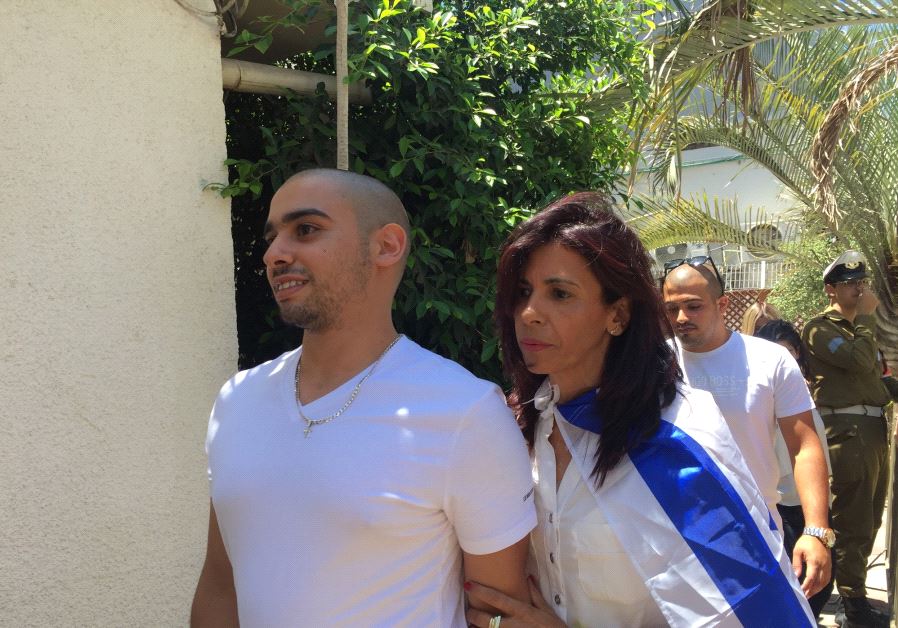IDF court ruling imminent on Hebron shooter jail sentence
If the appeals court upholds the jail sentence, half or more of Israelis are likely to disapprove and politicians may press for a pardon.
 Hebron shooter Elor Azaria and his mother heading to court, July 30 2017(photo credit: ANNA AHRONHEIM)Updated:
Hebron shooter Elor Azaria and his mother heading to court, July 30 2017(photo credit: ANNA AHRONHEIM)Updated: